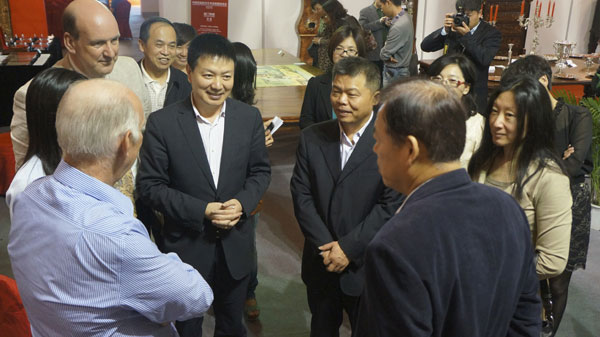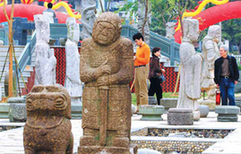
 |
|
Gan Xuejun, Huachen Auction's chairman and president, talks with participants and visitors at the international auction in Xiamen. Jules Quartly / China Daily |
"The world is open to China, but what we see here (in Xiamen) is that China is open to the world. It has to be at the same level."
By following the tried-and-tested formula of partnering with foreign organizations, Huachen and Epai Live intend to percolate foreign practices and expertise.
She says the "buyer beware" principal of Chinese auction houses, which are merely required to say they won't take responsibility for the quality of an item, "has to be changed".
 |
| Art of urbanity |
Gan adds: "Some players like to take advantage of the legal loophole, but they don't understand cheating means committing suicide. A fake product will ruin a company's reputation, which should be built to last for years.
"So, we need to learn from our Western counterparts - not about growing into big companies but about playing the game with credibility."
Additional evidence of the macroclimate for domestic auctions' transformation is that the two giants of the international industry are dipping their toes into the market.
Sotheby's has teamed up with Gehua Art Company to take advantage of the planned Beijing free port, while Christie's is set to become the first foreign auction company permitted to operate independently and will hold its first Chinese mainland sale in the autumn.
Gan welcomes them with open arms, saying their entry shows how strong the China auction market is.
"Second, they will introduce professionalism, codes of practice and credit. Third, their presence is a fresh challenge for the country's auctioneers."
He says that, as the first sale by foreigners in China, the Xiamen auction is a first step on a long road.
Naturally, he also believes a Chinese auctioneer will likely become a major player in the international industry.
As for Huachen, he insists: "The ambition is not about building the biggest company but about making it the last one standing."